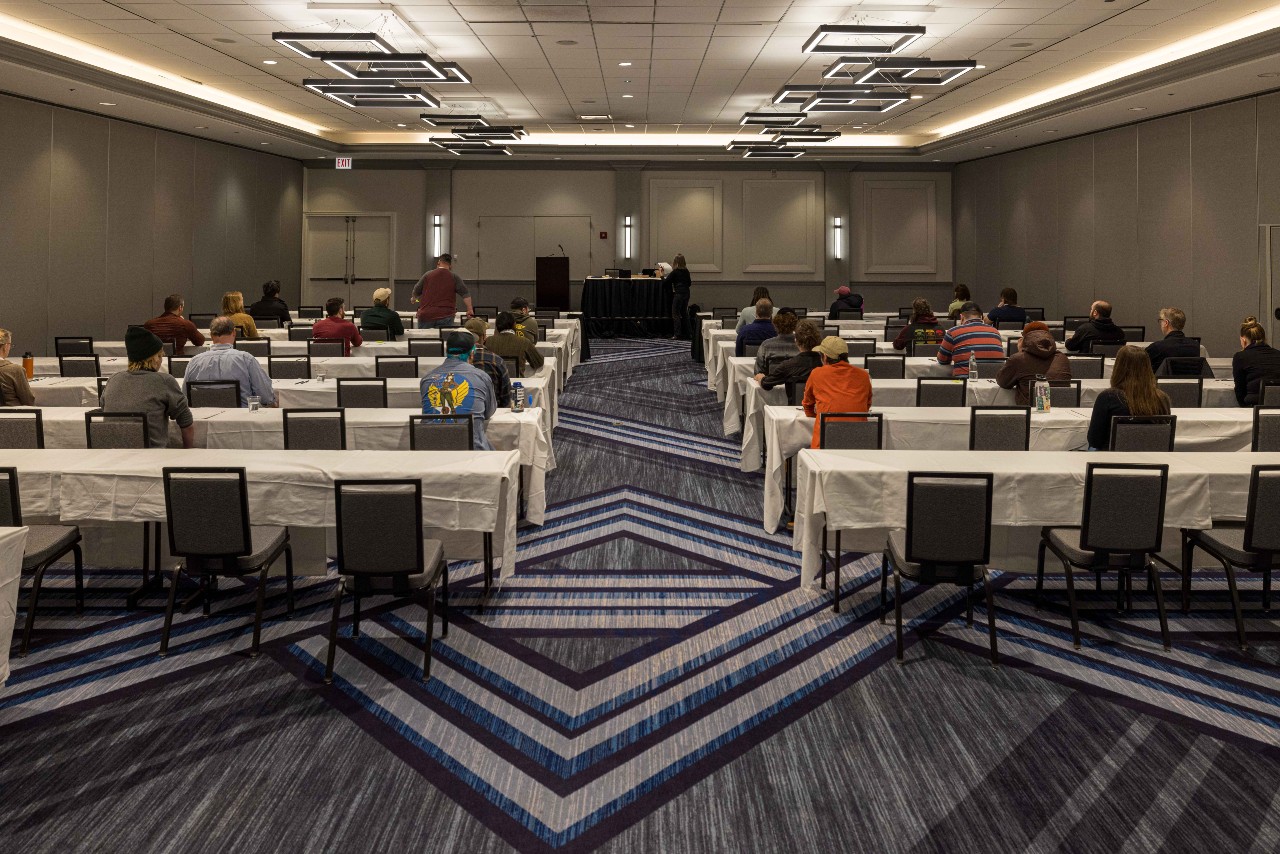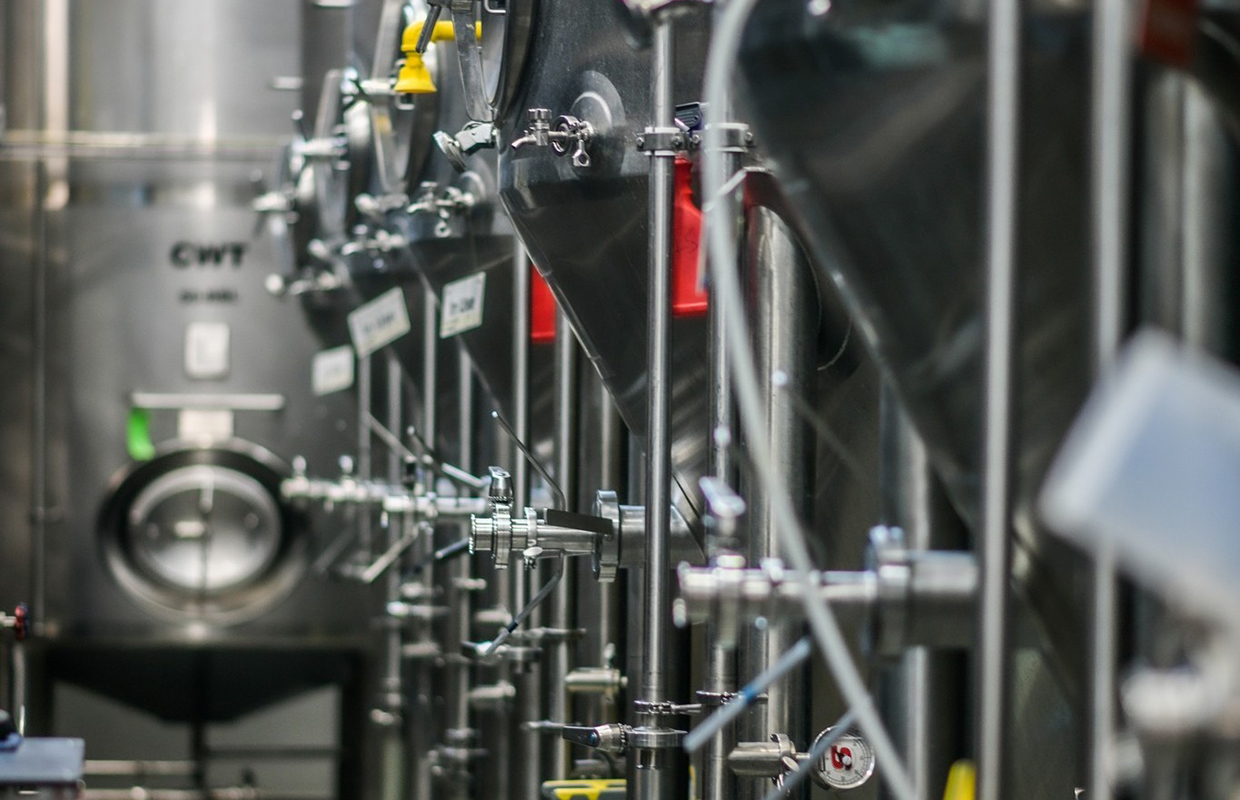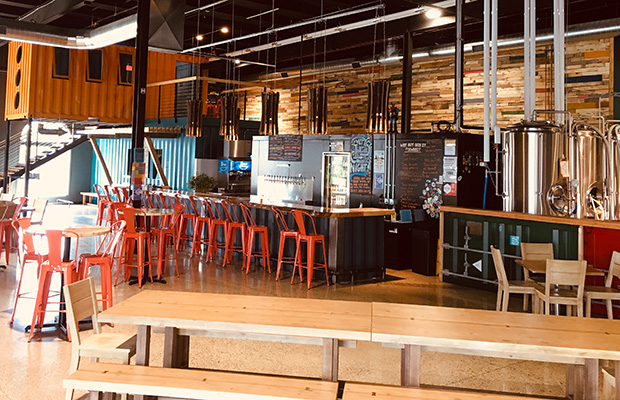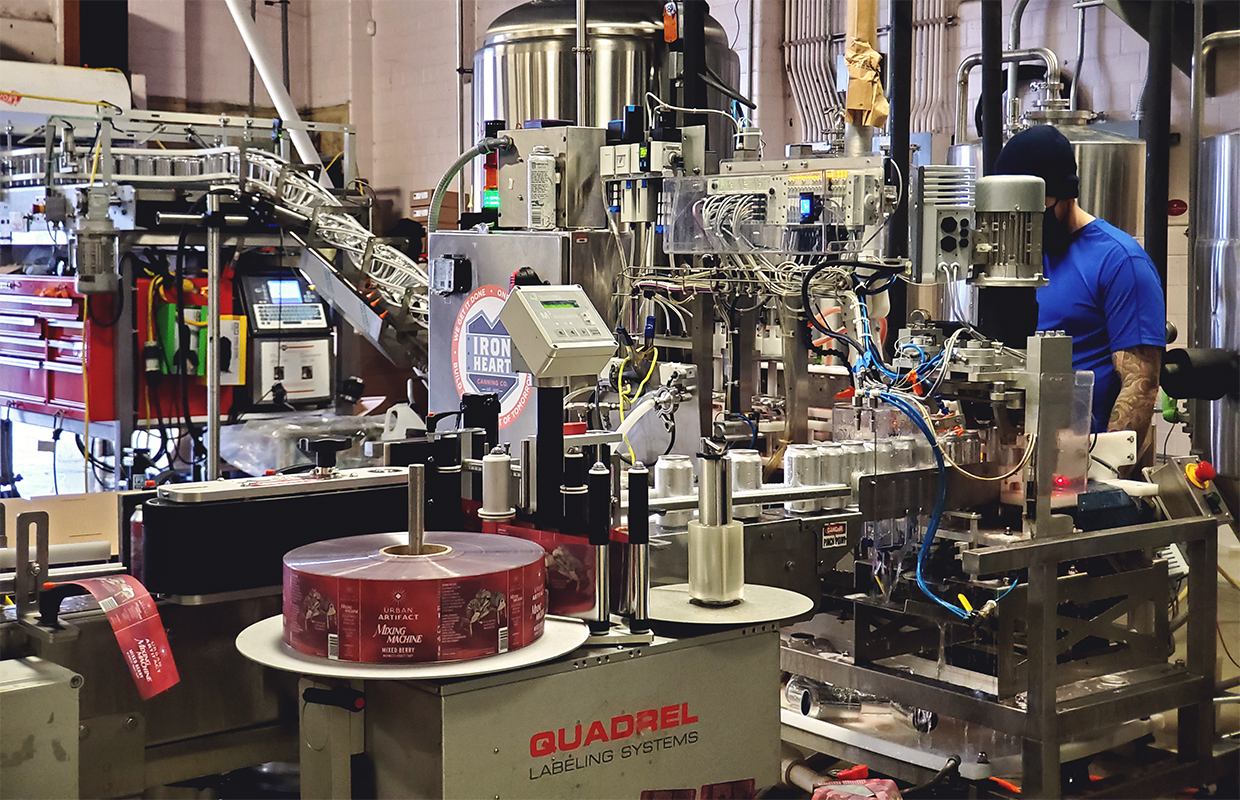
The American Cider Association recently announced the certification of 20 new Certified Pommeliers who earned the designation after passing their combined theory and sensory exam at CiderCon 2023 in Chicago.
There are just 65 Certified Pommeliers, so earning the designation puts these professionals in a special class.
The Certified Pommelier designation is the second level of the beverage certification program in cider, similar to a Cicerone Level 2 in beer or WSET Level 2 in wine.
Click here to read the full list of new Certified Pommeliers.
Brewer Magazine spoke with recently minted Certified Pommeliers Ann Marie Thornton, co-owner of James Creek Cider House; Cidermaker Anthony Lopez of Casa de Oro Cider; and Casey Simpson, Operations Manager of the Artifact Cider Project to learn some tips and tricks for taking the theory and sensory exam.
BREWER: What did you think the hardest part of the test was and what actually turned out to be the most difficult. How did you make sure you felt confident going into it?
SIMPSON: The hardest part of the test is the sensory portion. I was warned of that beforehand and can say for sure that is true now. I felt confident after taking most of the American Cider Association prep webinars, filling out the sensory form with several different ciders, and emailing with a couple Certified Pommeliers, who had already passed both portions of the exam. The most helpful part of the exam is being served all three ciders at once. I had been practicing with one cider at a time, but on test day, having all three together gave the advantage of being able to compare the ciders against each other.
LOPEZ: I thought that the hardest part of the test was going to be the sensory portion. After taking it while it was difficult and the time factor was what made it really pressing, The theory was a bit more nerve wracking for me. But I felt confident on both parts due to studying, making flash cards, and joining an online study group that had great people in it, that was clutch.
BREWER: What was the most useful thing you learned while studying for the test? How do you think it will make you stronger in the world of cider?
SIMPSON: The most useful part of studying for the test was taking my time picking out the various aromas and tastes. For the sensory, the goal is to find a common language, to communicate with cider enthusiasts and newbies around the world, so it’s important to have that base, common language, then expand from there to articulate personal experiences. Even though you may not exactly taste that cooked asparagus, you can learn what someone else may be calling cooked asparagus, so then you can bridge your palettes for a deeper, more meaningful discussion about the cider. Everyone has different tastes, preferences, and experiences, so looking at it purely at face value and extracting the most pertinent information for that common language is key.
THORNTON: My range and depth of appreciation for ciders has really grown through this experience.My husband David, also a certified pommelier, and I write the tasting notes for our James Creek Cider House and Stargazer Ciders so earning this designation has been important to us.
LOPEZ: One of the more useful things I learned while studying was the nature of apples relative to their geological climates. Understanding how the nature of an apple can be when it grows based on it’s growing conditions (in general) let’s me know where I may want to source apples from, imagine how they will taste, and what to expect when I buy them and if I’ll need other varieties to create a balance. It has also inspired me to look into other not so thought of areas for apples that, based on their climate and growing conditions, produce unique attributes to common varieties.
BREWER: What are some additional tips you would like to share for studying/prepping and the actual test taking process?
SIMPSON: The American Cider Association wants people to pass and continues to offer more and more tools to help test takers pass, so whatever they’re offering, use it! Prepare with the study guide and chip away at the reading list. The webinars and the example sensory forms include the exact language to get a passing score and have been completed by those who are Certified Pommeliers. Use the vocabulary accompanying the sensory forms and get familiar with what those words mean on your tastebuds in a cider, not just what the item tastes like. Join the Pommelier Study Group on Facebook. Lastly, I’d recommend reaching out to someone who has passed. The cider world is full of many friendly people. There are many Certified Pommeliers who would be more than happy to answer questions, myself included. For the exam itself, take your time, especially for the conclusion, aroma characteristics, and flavor characteristics. However, for anything with a scale associated with it, go with your gut the first time around, then compare and contrast against the other ciders once everything else is completed.
THORNTON: In preparing to take the exam, I made sure to explore a wide range of cider thoughtfully. Whenever I’m drinking cider or wine, I focus for a few moments to reflect on all the aromas and flavors I perceive. Discussing ciders and flavors with other cider aficionados definitely expanded my understanding and confidence level. The classes and seminars offered through the ACA were enormously helpful.
LOPEZ: One tip I have is to join a study group. If there isn’t one to join, start one. Pick a section of the reading, go over it for an hour, then the following week, move to the next one. We also did a few sensory tastings as a group — that was a huge help. Reach out to current Pommeliers and see if they’ll do a tasting with you to gain insight that way. That was super helpful and I was thankful to everyone who helped all of us along the way. Also a bottle shop partnered with the ACA to put together a Pommelier Sensory Exam kit with an answer key. This is what we used when we did it in the group and was crazy helpful, even among just my peers. So far as actually taking the exam, don’t drink the night before (it was CiderCon when I took it so that could have been an easy mistake). Other than that, drink your coffee early, stay hydrated, take your time, and talk with the other folks. I think my final thing would be, don’t get cocky about it either. It’s good to be confident and excited to take it, but being nervous or overestimating your abilities would only be to your detriment.




Be the first to comment